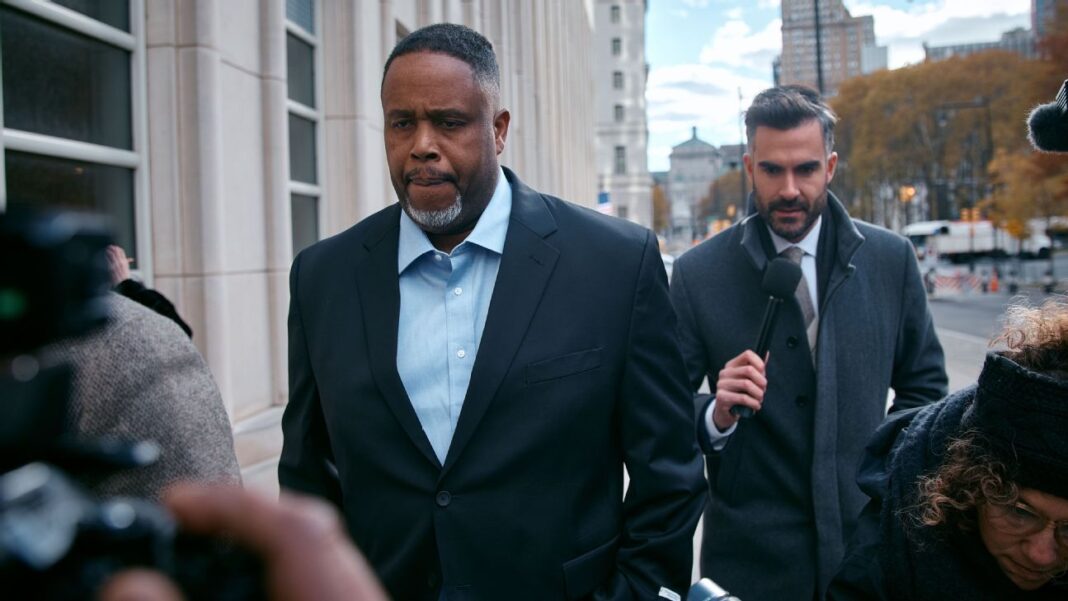Former NBA Player Damon Jones Pleads Not Guilty in High-Stakes Gambling Case
Background of the Case
Former NBA player and assistant coach Damon Jones has recently made headlines as he pleaded not guilty to multiple charges related to rigged poker games and for allegedly providing inside knowledge on player injuries to sports bettors. The arraignment took place in federal court in Brooklyn, New York, where Jones, flanked by his court-appointed attorney, characterized the legal proceedings with minimal commentary, allowing his lawyer to enter the not guilty pleas on his behalf.
The Allegations
Jones stands accused of serious transgressions that could reshape perceptions around integrity in professional sports. Prosecutors allege that he profited from arranged poker games that were manipulated using hidden cameras, altered shuffling machines, and even X-ray technology embedded in the tables. The indictment suggests that Jones was not merely a bystander but an active participant in these illicit activities, receiving payments to engage in cheating schemes.
Beyond poker, he faces accusations of sharing sensitive, nonpublic information about injuries affecting NBA superstars LeBron James and Anthony Davis. This information presumably gave bettors an unfair advantage, further complicating the implications of Jones’s actions.
The Poker Scheme
According to court documents, Jones participated in rigged poker games orchestrated by organized crime figures from New York. These high-stakes games often included altered equipment designed to benefit a select few, turning legitimate poker into a contrived series of wins and losses. Prosecutors indicated that Jones was compensated $2,500 for his involvement in these schemes and was instructed to focus on certain players while folding his hand if uncertain—a move that implies a well-orchestrated plan rather than mere chance.
Connection to NBA Players
The ramifications of Jones’s actions extend beyond himself, as he was part of a broader sweep that led to the arrest of over 30 individuals, including notable figures within the NBA like Chauncey Billups, the head coach of the Portland Trail Blazers, and Miami Heat guard Terry Rozier. The intertwining of basketball icons with organized crime activities raises questions about the culture of integrity within the sport and the lengths to which individuals may go in pursuit of personal gain.
Legal Proceedings and Future Steps
As Jones navigates through the legal landscape, he has acknowledged that he understands the charges against him, alongside the bail conditions that permit him to remain free pending trial. His bail was set at $200,000, partially secured by the collateral of his family’s Texas home. Looking ahead, his attorney mentioned the possibility of engaging in plea negotiations, hinting at a potential change in strategy as the case evolves. He is scheduled for a preliminary conference on November 24, where further developments may unfold.
Past Career and Reputation
Jones, a Galveston, Texas native, has transitioned from a successful NBA career to coaching roles post-retirement. Over 11 seasons, he played for ten different teams and notably earned over $20 million during his time in the league. As a former teammate of LeBron James with the Cleveland Cavaliers and later as an “unofficial” assistant coach for the Los Angeles Lakers, Jones’s actions have started to color his legacy as a player and coach.
The Impact of Information Sharing
The specifics of the allegations include claims that Jones directly solicited bets based on injuries to key players. For instance, prosecutors maintain that he informed a sports bettor, Marves Fairley, to place significant bets on teams before injury news was publicly disclosed. This dynamic of insider trading within sports betting blurs the lines of fair competition and raises ethical questions within the industry.
The Broader Context of Gambling in Sports
Jones’s case is not an isolated incident but part of a growing narrative around the intersection of sports and gambling. With the expansion of legal betting in various states, there is an increasing spotlight on how insider information can impact games and betting outcomes. Allegations like those against Jones could further fuel concerns about the integrity of sporting events and prompt calls for stricter regulations in the realm of sports betting.
Conclusion
As the legal proceedings unfold, the sports world watches closely. The mix of inside information, organized crime involvement, and former stars entangled in legal battles underlines complexities that lie beneath the surface of professional sports. The outcome of this case may have implications not just for Jones but for the NBA and the broader landscape of sports betting. The integrity of the game—and trust in its stars—hangs in the balance.



